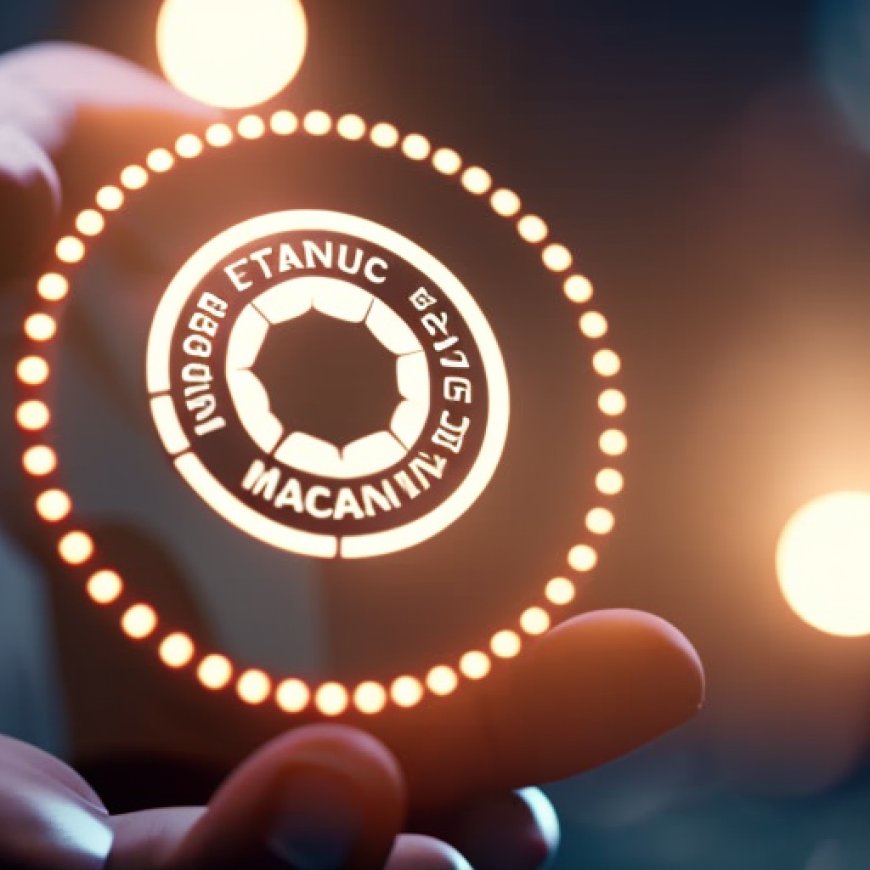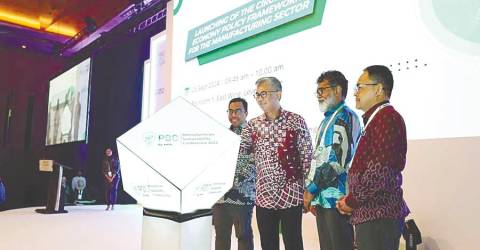Mit launches Circular Economy Policy Framework to promote sustainable manufacturing sector growth


KUALA LUMPUR: Ministry of Investment, Trade and Industry (Miti) Launches Circular Economy Policy Framework

The Ministry of Investment, Trade and Industry (Miti) launched the Circular Economy Policy Framework with the aim of reformulating fossil-fuel-based industrial models and catalyzing green growth practices across the manufacturing value chain.
Extended Producer Responsibility (EPR)
The framework outlines extended producer responsibility (EPR) as a key strategy to ensure that local producers take responsibility for the entire life cycle of their products until their eventual disposal. The aim of EPR is not to penalize producers, but for them to incorporate the costs of environmental management within the production process, incentivizing more sustainable practices along the way.
Achieving Circularity
Miti urges all industries and manufacturers to rethink their operations and adopt more innovative approaches to be part of the circular economy ecosystem. The framework is critical for two main reasons. First, to elevate the sector’s contribution to Malaysia’s gross domestic product (GDP) from its current baseline of 24% but through more sustainable pathways. Second, it is to ensure the sector reduces its carbon dioxide and greenhouse gas emissions from the current 20% contribution to our national climate change reporting.
Complementary Initiatives
The framework has been designed to complement the ambitions of the New Industrial Master Plan 2030, the National Energy Transition Roadmap, the National Industry Framework for ESG, and the Green Investment Strategy. Miti will strive to seek investments in areas such as remanufacturing and refurbishment, industrial waste management, and advanced recycling. This will result in the production of new sustainable industries and products, opening up new business opportunities for the industry.
Attracting Green Investments
Miti hopes to attract more green investments by implementing the framework and enabling the growth of a green economy.
Regional Sustainability Efforts
Tengku Datuk Seri Zafrul Abdul Aziz, the Minister of Investment, Trade and Industry, highlighted that Southeast Asia could lose up to 11% of its GDP by the end of this century if it fails to address climate change. As Malaysia assumes the chair of Asean by year-end, Miti plans to provide more impetus to this region’s sustainability effort while considering the different capacities of each member country. Catalyzing access to financing for climate resilience in Asean and the swift adoption of the Circular Economy Policy Framework will set the tone for that ambition.
– Bernama
SDGs, Targets, and Indicators
-
SDG 9: Industry, Innovation, and Infrastructure
- Target 9.4: By 2030, upgrade infrastructure and retrofit industries to make them sustainable, with increased resource-use efficiency and greater adoption of clean and environmentally sound technologies and industrial processes.
- Indicator: The Circular Economy Policy Framework aims to reformulate fossil-fuel-based industrial models and catalyze green growth practices across the manufacturing value chain, aligning with the goal of upgrading infrastructure and adopting sustainable technologies.
-
SDG 12: Responsible Consumption and Production
- Target 12.2: By 2030, achieve the sustainable management and efficient use of natural resources.
- Indicator: The Circular Economy Policy Framework promotes extended producer responsibility (EPR), which ensures that local producers take responsibility for the entire life cycle of their products until their eventual disposal. This aligns with the goal of sustainable resource management and efficient resource use.
-
SDG 13: Climate Action
- Target 13.2: Integrate climate change measures into national policies, strategies, and planning.
- Indicator: The Circular Economy Policy Framework aims to reduce carbon dioxide and greenhouse gas emissions from the manufacturing sector, aligning with the goal of integrating climate change measures into national policies.
-
SDG 17: Partnerships for the Goals
- Target 17.17: Encourage and promote effective public, public-private, and civil society partnerships, building on the experience and resourcing strategies of partnerships.
- Indicator: The Ministry of Investment, Trade and Industry (Miti) aims to attract more green investments and enable the growth of a green economy through the implementation of the Circular Economy Policy Framework, aligning with the goal of promoting partnerships for sustainable development.
Table: SDGs, Targets, and Indicators
| SDGs | Targets | Indicators |
|---|---|---|
| SDG 9: Industry, Innovation, and Infrastructure | Target 9.4: By 2030, upgrade infrastructure and retrofit industries to make them sustainable, with increased resource-use efficiency and greater adoption of clean and environmentally sound technologies and industrial processes. | The Circular Economy Policy Framework aims to reformulate fossil-fuel-based industrial models and catalyze green growth practices across the manufacturing value chain. |
| SDG 12: Responsible Consumption and Production | Target 12.2: By 2030, achieve the sustainable management and efficient use of natural resources. | The Circular Economy Policy Framework promotes extended producer responsibility (EPR) to ensure sustainable management of products throughout their life cycle. |
| SDG 13: Climate Action | Target 13.2: Integrate climate change measures into national policies, strategies, and planning. | The Circular Economy Policy Framework aims to reduce carbon dioxide and greenhouse gas emissions from the manufacturing sector. |
| SDG 17: Partnerships for the Goals | Target 17.17: Encourage and promote effective public, public-private, and civil society partnerships, building on the experience and resourcing strategies of partnerships. | The Ministry of Investment, Trade and Industry (Miti) aims to attract more green investments and enable the growth of a green economy through the implementation of the Circular Economy Policy Framework. |
Source: thesun.my








